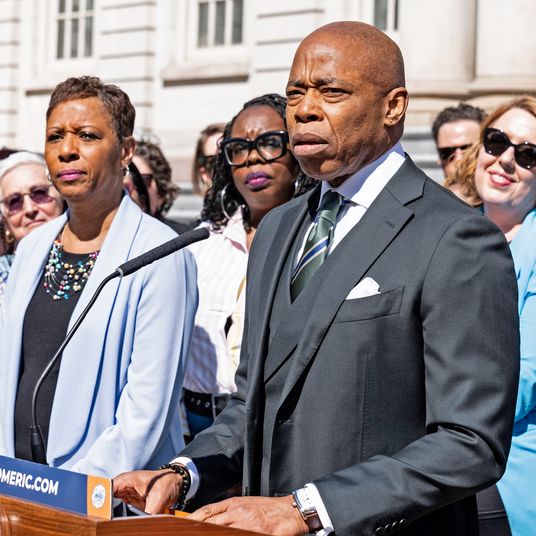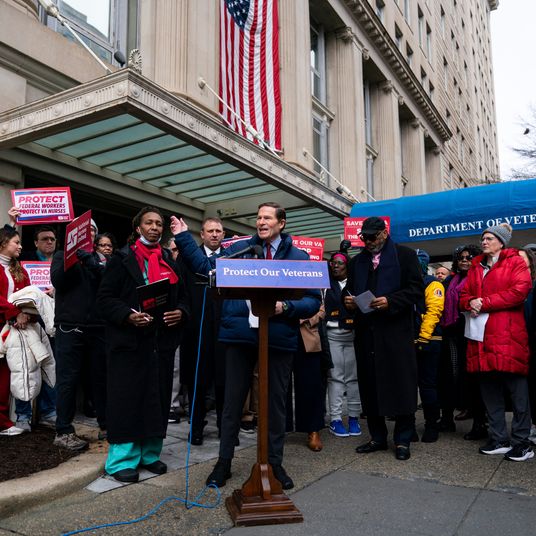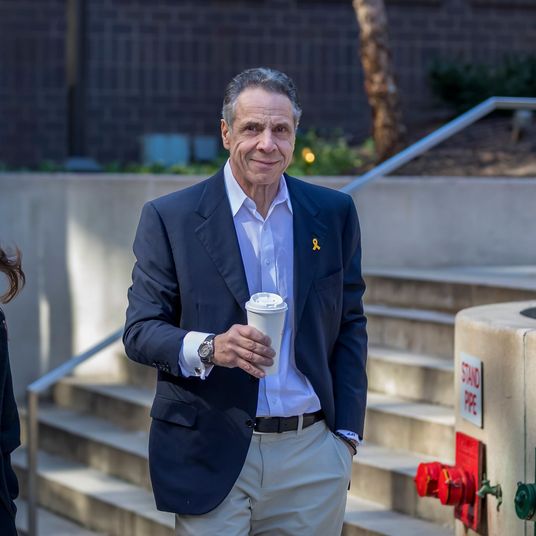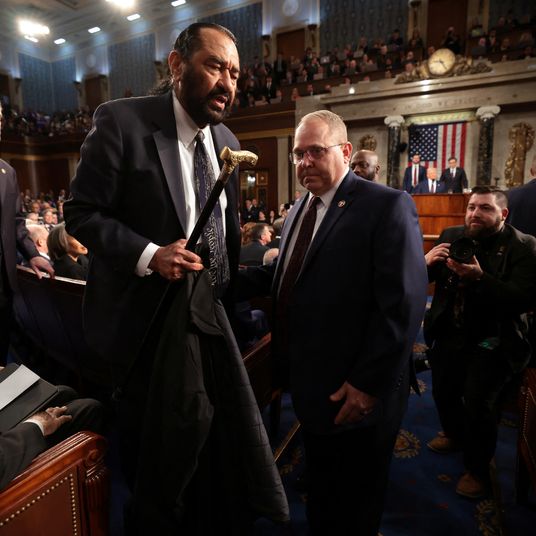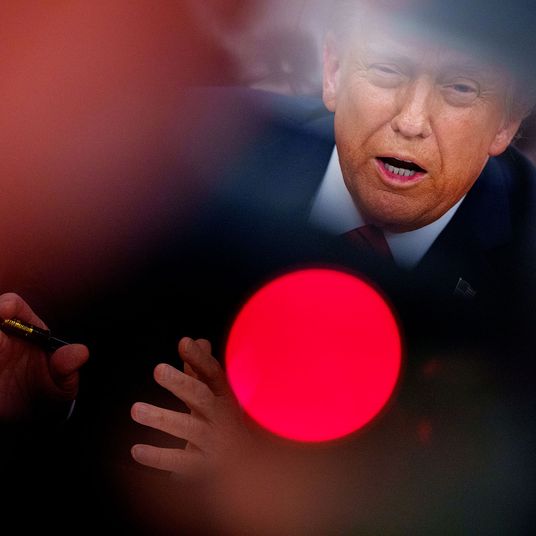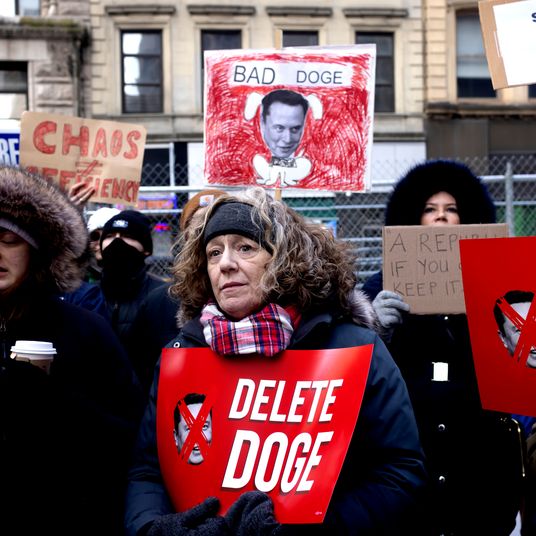Protests continued in Egypt on Sunday, and they’ve spread to Sudan and Yemen as well. In the U.S., Hillary Clinton said “an orderly transition” is necessary, indicating that the U.S. would support a post-Mubarak Egypt, as the calls for him to step down continue. The Obama administration is also reportedly preparing for a possible post-Mubarak era. Meanwhile, Egyptian opposition leader Mohamed ElBaradei appeared in Cairo today to rally the crowds, emerging as a possible successor to Mubarak. The latest on the developing situation, below:
• Secretary of State Hillary Clinton spoke out Sunday about the mass protests in Egypt: “We don’t want to send any message about backing forward or backing away. The future is going to be up to the Egyptian people.” She said that whatever happens, the nation needs an “orderly transition” to “real democracy.” She called for a dialogue with protesters. According to the Times, “Her phrasing seemed to imply an eventual end to Mubarak’s 30 years in power.” According to Politico: “She continued the Obama administration’s careful but unmistakable move away from Mubarak,” pressing for a move to democracy. But she also made clear that the United States “was not demanding that embattled President Hosni Mubarak step down.” [NYT, Politico, LAT, Newser]
• Inside the Obama administration, “there are signs that officials are preparing for a post-Mubarak era.” One former senior administration advisor said he had spoken to his old colleagues: “They don’t want to push Mubarak over the cliff, but they understand that the Mubarak era is over and that the only way Mubarak could be saved now is by a ruthless suppression of the population, which would probably set the stage for a much more radical revolution down the road.” Obama administration officials “recognized that change was coming and they needed to be on the right side of history and not try to keep Mubarak in power against all odds.” [LAT]
• The Atlantic’s Jeffrey Goldberg considers a post-Mubarak Egypt: “The Muslim Brotherhood might not end up in power; just as in Pakistan, the Islamists in Egypt represent only a minority of citizens. If the Brothers do end up in power, then the Israeli-Egyptian peace treaty, which is responsible for 30 years of stability in the eastern Mediterranean, would be in mortal danger, but even if Egypt were to break relations with Israel, this does not mean that war would necessarily follow. And what is more likely is that the Egyptian Army continues to play an important and stabilizing role, and the Egyptian Army, of course, depends on the United States for much of its budget, and it does not want to lose access to American-made weapons systems, which is what might happen if Egypt were to abrogate the peace treaty.” [Atlantic]
• Egyptian opposition leader Mohamed ElBaradei appeared at Cairo’s Tahrir Square Sunday, breaking the current military curfew that nobody is paying attention to at all anymore. The move could signal a possible attempt to position himself as President Hosni Mubarak’s leading opponent and successor. “I came today to participate in the lives of Egyptians,” he told protesters. “Today I look into the eyes of each one of you and everyone is different today. Today you are an Egyptian demanding your rights and freedom, and what we started can never be pushed back. As we said, we have one main demand: the end of the regime and to start a new phase.” ElBaradei called for Mubarak to “leave today and save the country.” He explained: “This is a country that is falling apart. Egypt needs to catch up with the rest of the world. We need to be free, democratic, and a society where people have the right to live in freedom and dignity.” Asked if he would serve as interim president of Egypt, ElBaradei said that if the people of Egypt requested his leadership, he would serve. [CNN]
• Sudanese police beat and arrested students on Sunday as hundreds protested throughout the capital demanding the government resign, inspired by the events in Egypt. (And also in Yemen and Tunisia.) Some 500 young people also protested in other Sudanese cities. Groups have emerged on social networking sites calling themselves “Youth for Change” and “The Spark,” attracting more than 15,000 members. “The people of Sudan will not remain silent any more,” a Facebook page said. “It is about time we demand our rights and take what’s ours in a peaceful demonstration that will not involve any acts of sabotage. We’re fed up.” [Reuters]
• Egyptian state TV reported Sunday morning that the Al Jazeera office in Cairo is being shut down and Al Jazeera reporters are losing their press credentials in Egypt. Al Jazeera correspondent Dan Nolan tweeted the news. Nolan added, “Don’t worry we’ll still report what’s happening in #Egypt no matter what new restrictions they put on us.” Al Jazeera released a statement on Sunday that said it “strongly denounces and condemns the closure of its bureau in Cairo by the Egyptian government.” [HuffPo]
• Looters broke into Cairo’s Egyptian Museum on Saturday, ripping the heads off two mummies and damaging ten historical artifacts before being caught and detained by soldiers. Museum director Zahi Hawass said the vandals did not manage to steal any of the museum’s antiquities, and that the prized collection is now under military guard and parts of the collection are now at the ruling party headquarters building next door to the museum. Hawass said: “What scares me is that if this building is destroyed, it will fall over the museum.” But what’s also scary is that people just ripped the heads off of mummies. [AP]









